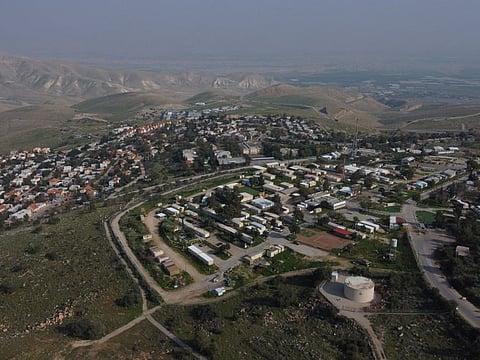Arab governments denounce Israel’s plans to annex West Bank. Will Israel listen?
It’s unclear how much land would be annexed, should it happen

Cairo: A succession of Arab leaders and officials have sharply warned Israel against moving forward with a controversial plan to annex Palestinian lands in the Israeli-occupied West Bank as early as next week - an action they say could destabilise the region and undermine peace efforts.
Jordan’s King Abdullah has declared it “unacceptable” and warned of a “massive conflict” in the region. Senior Jordanian officials have threatened to reconsider their peace treaty with Israel or their security cooperation agreements. Egypt, the only other Arab nation that has signed a peace treaty with Israel, has also objected, as have Saudi Arabia and Bahrain.
The UAE said annexation would imperil Israel’s chances of building stronger ties to Gulf nations. The headline of an opinion piece published in an Israeli newspaper by Yousef Al Otaiba, the UAE’s ambassador to the United States, read: “It’s Either Annexation or Normalisation.”
To many Palestinians, the pushback coming from Arab countries is welcome, especially to those who have detected a degree of fatigue and silence from their neighbours in recent years as countries have focused less on the conflict and more on quietly improving ties with Israel.
“I’m definitely pleased they are saying something, because there have been years when they said nothing,” said Diana Buttu, an activist and former negotiator for the Palestine Liberation Organisation now living in Haifa.
But it remains to be seen whether Arab leaders will go beyond mere statements of solidarity for Palestinians and take concrete measures in the event of annexation, Palestinians and regional analysts say. Pressure from the streets to do so could be limited, as Arabs across the region are distracted by the coronavirus pandemic, economic instability, civil wars and other woes.
The West Bank, which Israel has occupied since the 1967 Middle East war, is home to as many as 3 million Palestinians and roughly 430,000 Israeli Jews living in scores of colonies. The United Nations and most European countries consider the colonies illegal, but Israel and the Trump administration dispute this.
It’s unclear how much land would be annexed, should it happen. Israeli Prime Minister Benjamin Netanyahu vowed last year to annex the Jordan Valley, a swath along the West Bank’s boundary with Jordan, as well as areas containing Israeli colonies. This year, Netanyahu said as much as 30 per cent could be annexed.
Annexation is linked to Trump plan
But Israeli media reports have suggested that any takeover could be 5 per cent or less of the land, depending on what’s approved by the United States. Annexation is linked to a plan by the Trump administration for resolving the Israeli-Palestinian conflict - and the Arab condemnations have raised concerns about alienating key US allies in the region.
“Israel enjoys a less hostile Arab world, a friendlier Arab world and an Arab world that seeks Israel’s help with broader geostrategic interests in the region,” said Amaney Jamal, a Princeton professor and co-founder of the Arab Barometer, which gauges public opinion in the Middle East. “So why is Israel not saying, ‘Let us maintain this new era of ties, friendships and alliances and resolve the Palestinian issue’? It’s in Israel’s strategic interest, but Israel is calculating that it doesn’t need to.”
So far, Jordan has been the most outspoken in its opposition to the annexation plans. With its close ties to the United States and Israel, it’s also the most influential Arab country in changing Israel’s mind, analysts say.
Netanyahu and his loyalists have argued that the response by Arab governments to annexation is likely to be muted because of the interests they share with Israel in security, trade, technology and opposition to Iran.
But Al Otaiba said in his opinion piece that “annexation will certainly, and immediately, upend Israeli aspirations for improved security, economic and cultural ties with the Arab world and the United Arab Emirates.”
He added that annexation would “toughen Arab views on Israel.”
Sign up for the Daily Briefing
Get the latest news and updates straight to your inbox






